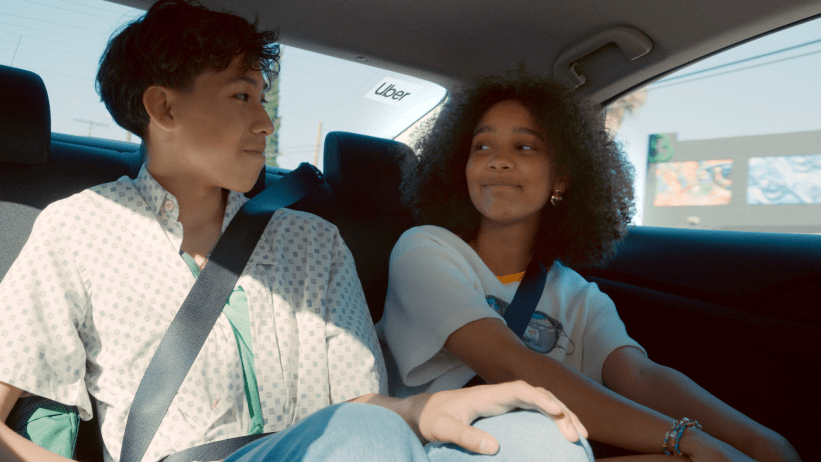According to a 2011 survey conducted by researchers at the Centers for Disease Control and Prevention, “9.4 percent of high school students reported being hit, slapped, or physically hurt on purpose by their boyfriend or girlfriend in the 12 months prior to the survey.”
Dating violence crosses all racial, economic, and social lines. However, most victims are young women, who often keep their suffering secret, so it is typical that parents don’t find out until things have gotten extremely out of hand.
Heidi*, the mother of an abused teenage daughter, explains, “We only found out, because my husband took her phone for another reason and was shocked to see messages our daughter’s boyfriend was sending her.”
Heidi says that her daughter Sabrina’s* boyfriend did not start mistreating her until months into the relationship. By that time, he had already established control over her.
“He would tell her things like, ‘Your mom and dad don’t love you like I do,’ ” Heidi reports. She says that the situation escalated rapidly. “The school called us one day and said that we had to get there immediately, because our daughter had been hurt by her boyfriend.”
Heidi describes the fear, hopelessness, anger, and frustration that a parent feels when this is happening to her child.
“It’s hard to understand how awful this is unless you’re going through it. It started to affect our marriage and our other children because we were consumed with Sabrina’s situation.”
Can parents help their daughters out of the abyss?
*Names changed to protect privacy.
Avoiding abuse from the get-go
A healthy and loving relationship with male caregivers is a good prerequisite for future relationships, because girls will know what to look for in a male companion. However, this does not guarantee that your daughter won’t become involved in a destructive relationship.
“The key lies in creating a strong, loving bond between a daughter and her dad. This is her first relationship with a man and later leads to her choice of men to date and marry,” explains Dr. Carole Lieberman, host of the weekly internet radio show, Dr. Carole’s Couch, and member of the clinical faculty at the University of California, Los Angeles’s Neuropsychiatric Institute.
Rabbi Shmuley Boteach, founder of This World: The Values Network and international best-selling author of 30 books, including “Ten Conversations You Need to Have with Your Children,” counsels, “Parents need to be up to speed on what their children are doing.”
Warning signs
Some suitors don’t seem violent at first, so it is imperative that parents are aware of potential warning signs.
Dr. Christine Weber, a clinical neuropsychologist practicing in Seaford, NY, instructs parents to be wary of the following behaviors:
• Your teen stops sharing information with friends and family.
• Your teen becomes isolated.
• Your teen justifies the abuse (e.g. “He didn’t mean to shove me.”).
• Your teen drastically changes her appearance to satisfy her boyfriend’s needs instead of her own.
• Your teen’s boyfriend refuses to meet you. (Not necessarily a sign of abuse, but a general “red flag.”)
Steps parents should take
“You need her to trust you; otherwise, she won’t even be able to hear you,” says Dr. Robert Epstein, a senior research psychologist at the American Institute for Behavioral Research and Technology and author of “Teen 2.0: Saving Our Children and Families from the Torment of Adolescence.”
“The most important way to achieve this is to show her that you trust her judgment, and not to criticize her for being an idiot who is being taken advantage of by a defective male.”
Rabbi Boteach says that parents need to be in positions of authority but understand their child’s needs.
“Rather than saying ‘I won’t allow it,’ ask questions about what your teen is feeling, such as ‘Do you feel this young man respects you?’ ”
Lieberman recommends that parents step in when violence occurs.
“Contact the school and the police, especially if there is proof of physical abuse.”
Epstein urges parents to be on their daughter’s side by giving her a better quality of love than her boyfriend is giving. Unconditional love and being there to pick up the pieces are essential.
Tips and tales
“Teen girls should be leery of the guy who doesn’t want her to go out with her friends and family or gets jealous if he doesn’t have her attention.”
Laura Bongiorno, Hyde Park, NY
“Showing them the consequences of what could happen to them (e.g. a battered women’s shelter) if they choose to stay in a violent relationship is convincing. Reassurance that you love them unconditionally is also important.”
Patti Clerc, Ocala, FL
“Love is blind sometimes, but as parents, we should be involved in our daughters’ relationships. Meet and get to know the boyfriend, but not in a controlling way.”
Rhonda Dixon, Kingston, NY
“Controlling relationships start out with a lot of attention, which can be flattering. When they have someone who showers them with gifts, they think it’s the real thing. However, the gifts often come with strings, and the giver can be quite pushy about collecting.”
Debbie St. Onge, Poughkeepsie, NY
Share your ideas
Upcoming topic: Adolescents affected by divorce. How parents can help.
Please send your full name, address, and brief comments to myrnahaskell@gmail.com or visit www.myrnahaskell.com.
Myrna Beth Haskell is a feature writer, columnist, and author of, “Lions And Tigers And Teens: Expert Advice and Support for the Conscientious Parent Just Like You” (Unlimited Publishing LLC, 2012).





















